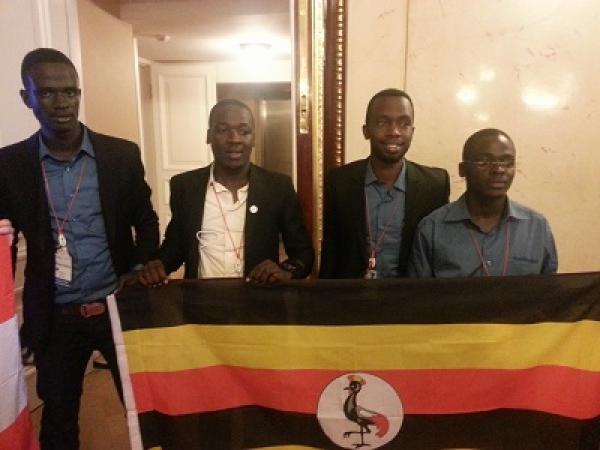Innov8tiv Interviews The Young Ugandan Innovators Behind The Matibabu App
On July 20th, we featured an article about the Matibabu App; an app that is set to improve how medical practitioners diagnose the number one-killer disease in sub-Saharan Africa, malaria. Conventionally, the procedure is for a medical practitioner to get a sample of the patient’s blood by pricking the tip of the patient’s finger. Then examine the blood under a microscope for the malaria plasmodium parasite.
With the Matibabu app, diagnosis is said to be far more accurate and can detect the malaria plasmodium parasite in the patient’s blood far much earlier than a medical practitioner could, using a microscope. Today, Innov8tiv brings you yet another exclusive interview with the innovative team behind the Matibabu app.
Tell us about yourselves; Please mention all of your current projects as well
I am Brian Gitta CEO at Matibabu. Matibabu is a Swahili word for medication/medical Centre. I have closely worked with Joshua Businge Mulessi as the head of Research, Simon Lubambo Head Engineer and Josiah Kavuma as the head of software development for almost 2years now. Technology is a great weapon that we have, not to bring war or misunderstanding, but to fight against the problems in our societies.
What prompted you to want to create Matibabu?
Brian Gitta wasn’t in the mood to get stuck by another needle he was already getting injections three times a day to fight off a foodborne illness. But as his fever spiked and the pain in his joints worsened, he suspected the disease he’d caught as a child more times than he could count, malaria. “Remembering the scene of the of a kid locked in their mother’s legs during diagnosis (screaming) I just kept hating the needles and thinking of a way people could be diagnosed without pain in addition to the misery they’re going through already,” Gitta recalled.
Who helped you to complete the project?
We are thankful to a number of people that have and are still supporting the project and those we have worked with e.g. Microsoft Innovation Center Uganda, UN women for the UN Women Empowerment Award under Imagine Cup and ResilientAfrica Network.
How difficult was it pulling the information together for the App and what challenges did you face
It actually took a long time because the field was a new one since our background is in computing we had to do lots of research and understanding of the project.
In your experience, what do you think is severely lacking within the Health Sector in Technology?
Having the people that are not willing to give up and work on these aspects is what is actually missing. The health sector is very delicate because if you get it wrong people’s lives are dependent on it so you may be responsible for their death. This is why most people tend to play it safe, but if they change their mindsets and work hard towards the great ideas, a lot will change.
What are the most important things you have learnt from this project?
I have learnt that building a strong team is a key aspect in building a strong startup not forgetting having that entrepreneurial culture.
What is your career advice to others creating apps such as matibabu?
Deep research is fundamental for such sensitive areas like health, and it takes time so all you need is to keep in that lab work smart and fast, build a strong team and believe in your work. With all this, we shall change the world for the best.




Comments are closed.